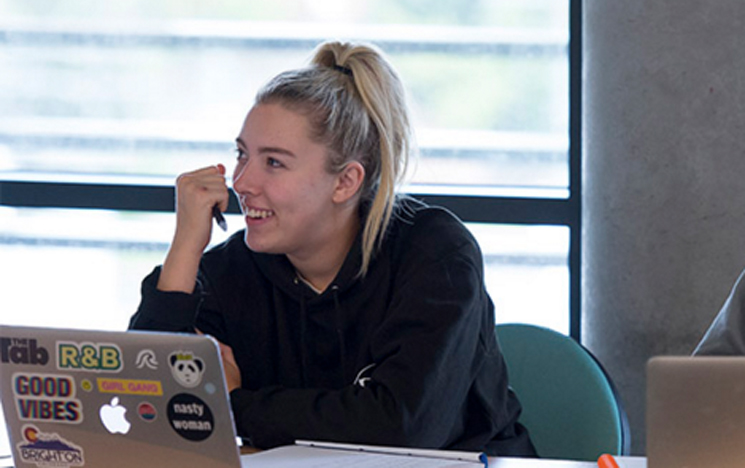Mathematics
Whether you're studying abroad at Sussex for a semester or year, you can browse our mathematics modules below, and if you're unsure what to study, follow our top tips for how to choose a module.

Browse our modules
You can see our full list of mathematics modules below.
Year 1
Year 2
Year 3
-
Autumn Semester
- Applied Numerical Analysis (L.6)
- Computing for Data Analytics and Finance (L6)
- Data Science Research Methods Autumn (L6)
- Financial Mathematics (L.6)
- Functional Analysis (L.6)
- Introduction to Mathematical Biology (L6)
- Linear Statistical Models (L6)
- Partial Differential Equations (L6)
- Probability Models (L6)
- Spring Semester
- Undergraduate Academic Year
Not sure how to choose?
Follow our top tips for choosing your modules. You can also find out about our teaching structure, assessment process and how your credits transfer back to your home institution.
Find out more.
Which school will I study in?
You'll study in the Department of Mathematics which is part of the School of Mathematics and Physical Sciences.
Our academics are making world-changing impact in areas ranging from smart materials and predicting floods to the behaviour of queues, social networks and infectious disease control.
Find out more.
Our mathematics research
Staff at Sussex are working in areas such as using mathematical modelling to try and control the spread of meningococcal meningitis in sub-Saharan Africa.
Our research influences the way we teach, and you learn from academics at the forefront of their fields.
Find out more.
Contact us
If you are studying at Sussex for a semester or year and have questions, email sussexabroad@sussex.ac.uk.
*The Complete University Guide **(Our campus is nine minutes by train from Brighton & Hove) survey by accommodation providers Student Living by Sodexo. Rankings based on full undergraduate degree at Sussex.